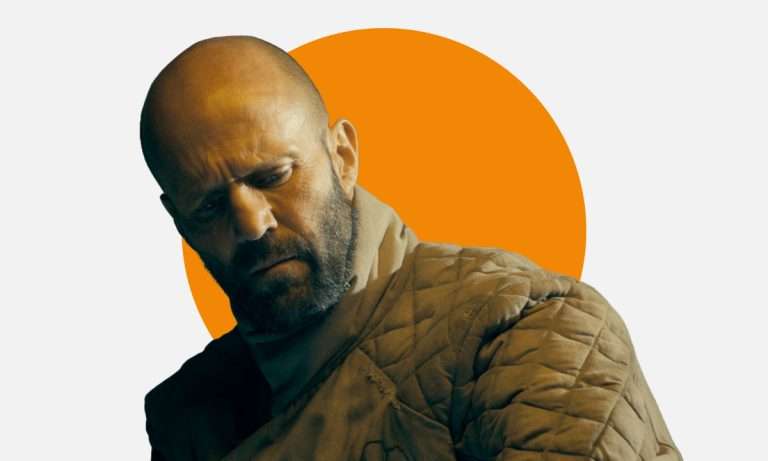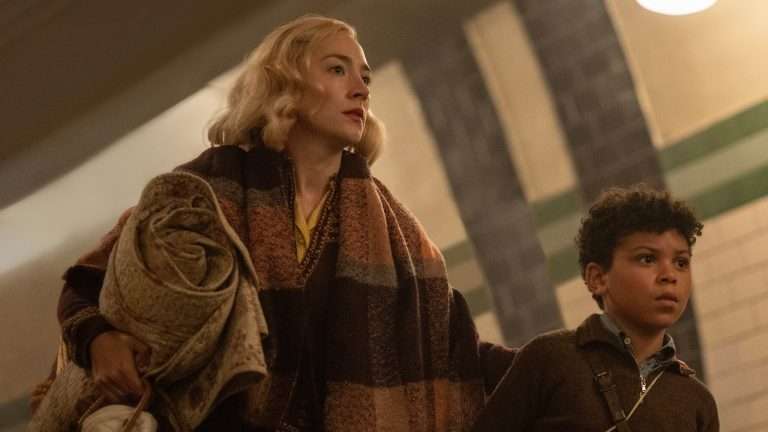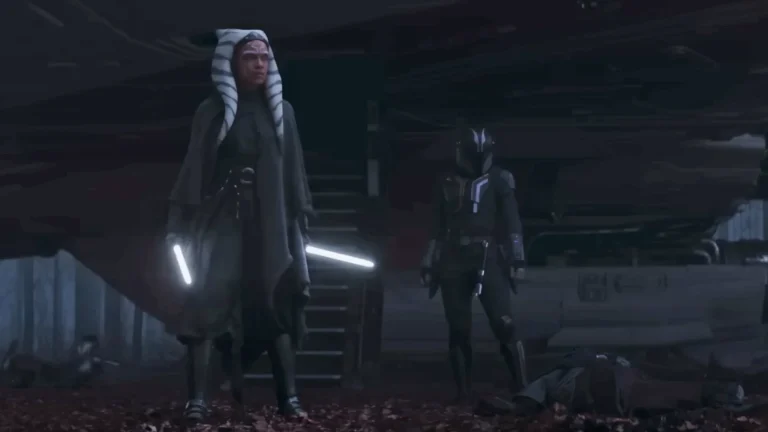With the fourth instalment of Tom Holland’s MCU Spider-Man story, “Spider-Man: Brand New Day,” currently in production and set to hit the big screen just next year, it’s about time we revisit where it all began with Jon Watts’ 2017 feature, “Spider-Man: Homecoming.” One year removed from Holland’s Spidey debut in “Captain America: Civil War” came a movie that, once upon a time, looked like an impossibility.
Marvel’s financial struggles in the late ‘90s forced them to sell off the film and television rights to some of their most popular IPs, with Spider-Man – arguably the jewel in the crown of comic book characters – raking in a purchase of just $7 million from Sony. A deal that, in hindsight, looks to be the steal of a lifetime. Following their purchase of the on-screen rights to the character, Sony would go on to develop the much-loved Sam Raimi “Spider-Man” trilogy with Tobey Maguire in the lead across the 2000s, with the Marc Webb-directed, Andrew Garfield-starring, “The Amazing Spider-Man” duology following in the early 2010s.
However, with the explosion in popularity of the MCU, becoming the most celebrated franchise in all of pop culture and hitting heights previously unheard of, the idea of Marvel’s most popular hero not being invited to the party was a sad one for all with an interest in the series. So, when finally the two studios came together to work out a deal that benefited all parties, fans rejoiced at the idea of seeing their friendly neighbourhood Spider-Man interacting with some of the other heroes in Marvel’s arsenal who had since become on-screen icons following the rise to power of the MCU.
With the Russo brothers so masterfully handling the character’s introduction in “Captain America: Civil War,” it was now up to Jon Watts to move the series forward and finally provide an answer to the question of what exactly a solo “Spider-Man” movie could look like in this all-powerful connected universe. So, how’d he do?
Well, he got off to a bit of a mixed start. The opening scene of the film takes us back in time to 2012, specifically the battle of New York, which we saw depicted in Marvel’s first ensemble blockbuster, and the movie that shaped the trajectory of the franchise forever, “The Avengers.” It’s here that we’re introduced to Michael Keaton’s Adrian Toomes, the leader of a cleanup crew who legally salvages the remains of any incidents across New York City, with the scene picking up as the team begins to recover the mess caused by Loki and his band of alien invaders.
This is, until a newly formed damage control team, founded by Tony Stark, announces that they will be taking control from here on out, essentially leaving Toomes and his squad of working-class New Yorkers out of a job entirely. Making for Toomes’ eventual villainous transition into the Vulture all the more intriguing, with motivations and justifications that might just make you question who the bad guy is after all.
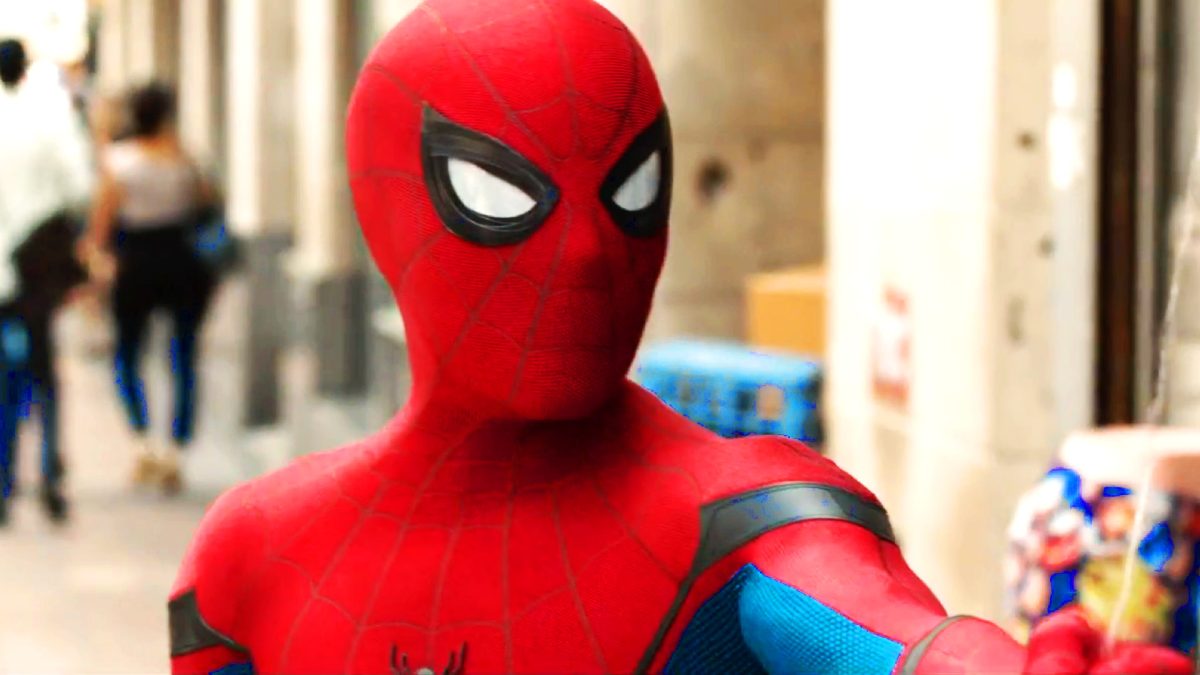
Also Read: 10 Reasons Why Spider-Man: Into the Spider-verse is the Greatest Spider-Man Movie Ever
The Vulture is what you might refer to, in professional wrestling terms, as a ‘justified heel’ – a villain whose reason for turning to the dark side could be seen as understandable given the hand they’ve been dealt. These types of characters make up some of the strongest in the MCU’s roster of antagonists, with the likes of Erik Killmonger and Baron Zemo amongst the series’ most gripping individuals. In the case of Toomes, having your livelihood and ability to provide for your family taken away by somebody considerably more fortunate certainly sounds like cause for a spiral, and undoubtedly makes for one hell of a compelling story.
Toomes’s grounded motivations are just one reason he stands out as such an effective villain. But it’s Michael Keaton’s Oscar-nominated gravitas and chilling intensity that elevate him — a performance that, while perhaps surpassed since, placed him firmly at the summit of MCU villains at the time. In a pre-Thanos World, Marvel struggled to get over the hurdle that was how to convincingly portray their antagonists in a way that stuck with audiences and didn’t fall to the wayside amidst the heroics of their stars.
Toomes’ palpable struggle, though, backed into a corner with no other choice but to do what’s necessary to get by, makes him firstly a more intriguing character than any before him, but also a credible threat, willing to go as far as he needs to in order to protect what he loves most. Driven by a recognisable love of family and disdain for those privileged with excessive wealth.
Where the cracks begin to show, however, is once we jump back to the present day, which, according to the film, takes place eight years after the events of “The Avengers.” The problem? That timeline doesn’t hold up — “Homecoming” directly follows “Captain America: Civil War,” which occurred only a few months prior, not eight years after the Battle of New York. It’s a small but unjustifiable error for a production of this scale, one that even prompted director Joe Russo, one-half of the duo behind “Avengers: Infinity War” and “Endgame,” to admit that the time card was, in fact, “very incorrect.”
But let’s not let a mindless mistake stop us from focusing on the wealth of other positives that the film has to offer. Chief among them, Tom Holland’s performance as Peter Parker, which manages to recapture all the delightful charm that Tobey Maguire put forward 15 years earlier, whilst bringing his own all-new likability to the role.
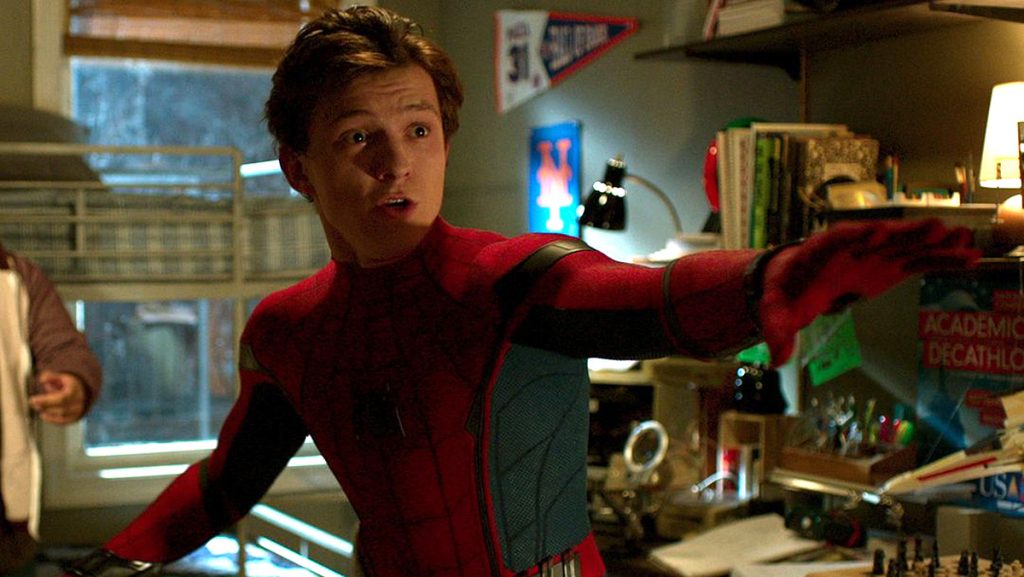
Check Out: Every Spider-Man Live-Action Movie Villains Ranked
From the moment Peter enters the story with his irresistibly endearing documentary of his trip to Berlin, this immediately feels like freshman Peter Parker ripped straight from a comic book. A nerdy, lovable, witty, and above all else, human hero who, despite his superhuman powers, feels relatable to the everyday person. Peter’s relationship with Ned in particular only enhances his familiar lovability, with the two’s shared passion for LEGO Star Wars and admiration for The Avengers giving them the feel of true best friends, the kind of relationship that was lacking from Garfield’s iteration just a few years prior.
The film’s high school setting and playful humour give the feel of a teenage comedy straight out of the ‘80s, taking on the ideology of “what if John Hughes made a Spider-Man movie?” With a direct reference even being made to Hughes’ classic, “Ferris Bueller’s Day Off.”
This approach allows us to really get a look at Peter’s life outside of Spider-Man, letting us get to know him, reminding us of just how young he is, whilst getting to see what he’s passionate about and values most, making his constant sacrifice for the greater good hit just that much harder. It also gives us the most grounded of Holland’s trilogy, not dealing with the multiverse or any sort of otherworldly threat, but rather keeping its feet firmly flat on the ground.
This is, however, only true to a certain extent, with Peter’s links to Iron Man and connection to the greater MCU still slightly disconnecting him from reality when in the suit. With Watts unable to ever quite find the perfect balance between comic book whimsy and human relatability, the way that Sam Raimi managed to do so.
In particular, Peter’s half-a-million-dollar, Tony Stark-designed suit being equipped with all the gadgets and gizmos of your wildest dreams, causes the character to lose a touch of the essence of what makes him so special, rendering his Spidey Senses obsolete and stripping away a lot of the gritty struggle that makes Spider-Man relatable to the average individual.
That said, there’s an innate likability to the whole thing, with infectious personalities and performances sprinkled all over the film – a nostalgic blockbuster that ultimately feels, above all else, like a straight-up superhero flick. An incredibly fun and valiant attempt at the MCU’s very first solo “Spider-Man” movie. Even if it suffers from the usual bland MCU visual style, moments of rough effects, and occasionally loses sight of what makes Spider-Man unique, it still manages to shine.
When you get one of the great comic book movie villain performances from Michael Keaton and pair it with potentially our most complete Spider-Man yet, it makes for a whale of a time that, eight years on, holds up as one of the Marvel Cinematic Universe’s finest. A reminder of just how special these movies used to be, and how much fun they are at their best.



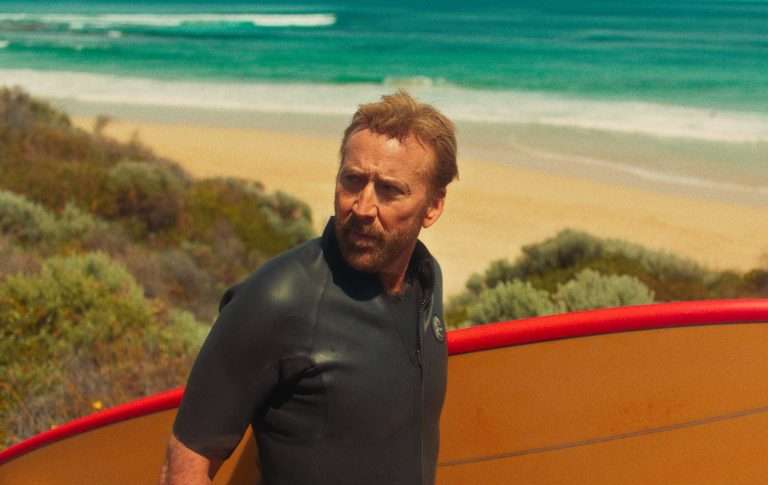

![The Realm [2018] Review – A Brilliantly Paced Political Thriller](https://79468c92.delivery.rocketcdn.me/wp-content/uploads/2019/02/The-Realm-2018-768x512.jpg)
